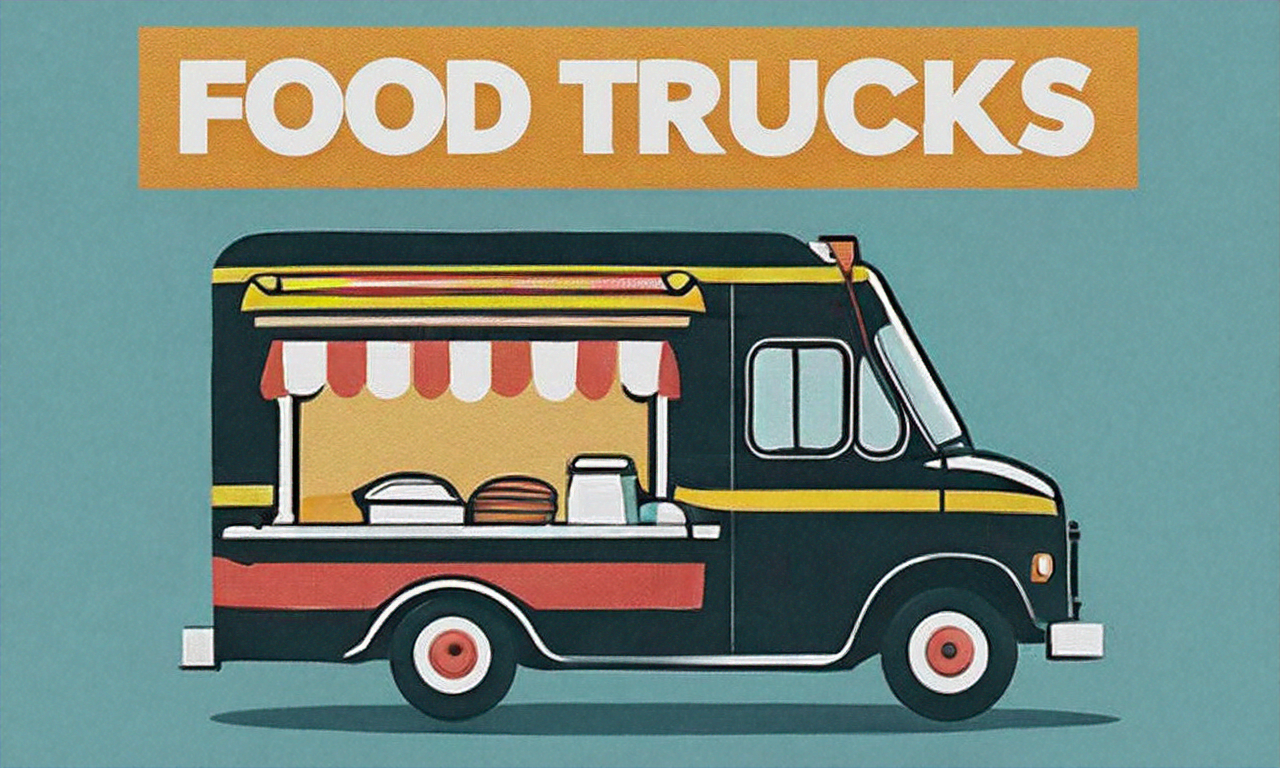What It Takes to Own a Food Truck: Cost, Financing, Licensing, Build Time & Key Mistakes to Avoid
Buying a food truck involves more than finding a mobile kitchen: you’re navigating costs, permits, financing, and long-term operational demands. The questions above reflect what aspiring food truck owners repeatedly search for—from deciding between new or used trucks to estimating permits, build-out times, equipment, and hidden costs. This article will answer these ten essential questions one by one, offering clear guidelines, practical examples, and cautionary advice. Whether you're just starting out or comparing your options, the information here will help you move forward with confidence and fewer surprises.

How Much Does a Food Truck for Sale Cost?
New food trucks typically range from $50,000 to $200,000 depending on size, equipment, and customization level. Basic trucks with standard kitchen equipment start around $50,000, while fully customized units with premium appliances can exceed $150,000. The truck itself represents just one component of total startup costs, which often reach $175,000 to $300,000 when including permits, initial inventory, insurance, and working capital.
Used food trucks for sale offer more affordable entry points, typically priced between $20,000 and $80,000. However, buyers should budget for potential repairs, equipment upgrades, and modifications to meet local health department requirements. Age, condition, and included equipment significantly impact pricing for pre-owned units.
Where to Find Food Trailers for Sale
Food trailers present an alternative to truck-based operations, often requiring lower initial investment since they don’t include the vehicle component. Trailers typically cost $15,000 to $100,000 depending on size and equipment specifications. Popular sources include specialized manufacturers like Concession Nation, Custom Concessions, and Food Cart USA, along with online marketplaces and local dealers.
When evaluating food trailers for sale, consider towing vehicle requirements, storage needs, and mobility limitations compared to self-contained trucks. Trailers offer flexibility for seasonal operations and easier storage during off-seasons, making them attractive for specialized concepts like ice cream trucks or seasonal festival vendors.
Specialized Options: Ice Cream Trucks and Taco Trucks
Ice cream trucks represent a specialized niche with unique considerations. New ice cream trucks cost $60,000 to $120,000, while used units range from $25,000 to $70,000. Success depends heavily on route planning, seasonal demand management, and local regulations regarding mobile vending in residential areas.
Taco trucks have become increasingly popular, with startup costs ranging from $75,000 to $180,000 for new operations. Equipment needs include specialized grills, fryers, and food prep areas designed for Mexican cuisine preparation. Location selection proves critical for taco truck success, as these businesses often depend on regular customer bases in commercial areas, construction sites, or entertainment districts.
Financing Options for Food Truck Purchases
Traditional bank loans, SBA loans, and equipment financing provide common funding sources for food truck purchases. SBA loans often offer favorable terms with lower down payments, though approval processes can be lengthy. Equipment financing specifically for food trucks typically requires 10-20% down payments with terms ranging from 3-7 years.
Alternative financing includes personal savings, investor partnerships, and crowdfunding platforms. Many successful owners combine multiple funding sources, using personal funds for down payments while financing the remaining balance. Credit requirements vary by lender, but most require credit scores above 650 for favorable terms.
| Financing Type | Typical Down Payment | Interest Rate Range | Loan Terms |
|---|---|---|---|
| SBA Loans | 10-15% | 6-12% | 5-10 years |
| Bank Equipment Loans | 15-25% | 8-15% | 3-7 years |
| Alternative Lenders | 10-20% | 12-25% | 2-5 years |
| Personal Loans | 0% (if self-funded) | 10-20% | 2-7 years |
Prices, rates, or cost estimates mentioned in this article are based on the latest available information but may change over time. Independent research is advised before making financial decisions.
Licensing and Permit Requirements
Food truck licensing involves multiple government levels and agencies. Federal requirements include EIN numbers for tax purposes, while state licensing typically covers business registration, sales tax permits, and food handler certifications. Local permits often prove most complex, including mobile vendor licenses, health department permits, and fire department approvals.
Health department inspections require trucks to meet strict sanitation standards, including proper refrigeration, hand-washing facilities, and food storage systems. Many jurisdictions require commissary kitchen arrangements for food preparation and truck servicing. Permit costs vary significantly by location, ranging from $500 to $5,000 annually for comprehensive licensing packages.
Build Time and Preparation Timeline
Custom food truck builds typically require 8-16 weeks from order to delivery, depending on complexity and manufacturer backlog. Design approval, equipment selection, and inspection scheduling can extend timelines, particularly during peak seasons. Used truck purchases may reduce acquisition time but often require modification periods for customization and compliance updates.
Permit acquisition should begin early in the process, as health department approvals can take 4-8 weeks after truck completion. Many owners underestimate preparation time, leading to delayed launches and increased carrying costs. Creating detailed timelines with buffer periods helps manage expectations and cash flow during the startup phase.
Common Mistakes to Avoid
Underestimating total startup costs represents the most frequent error among new food truck owners. Beyond truck purchases, ongoing expenses include fuel, maintenance, ingredient costs, permit renewals, and insurance premiums. Many entrepreneurs focus solely on truck costs while overlooking working capital needs for the first 6-12 months of operations.
Location research proves critical but often receives insufficient attention. Successful food trucks require consistent, high-traffic locations with appropriate zoning permissions. Failing to secure reliable spots or understand local competition can doom otherwise well-prepared businesses. Market research should include peak hour analysis, customer demographics, and seasonal demand patterns.
Food truck ownership offers entrepreneurial opportunities with lower barriers than traditional restaurants, but success requires thorough planning and realistic financial projections. Understanding total costs, securing appropriate financing, and navigating complex licensing requirements form the foundation for sustainable operations. Avoiding common pitfalls while focusing on location strategy and customer service creates the best opportunities for long-term success in the competitive mobile food industry.




